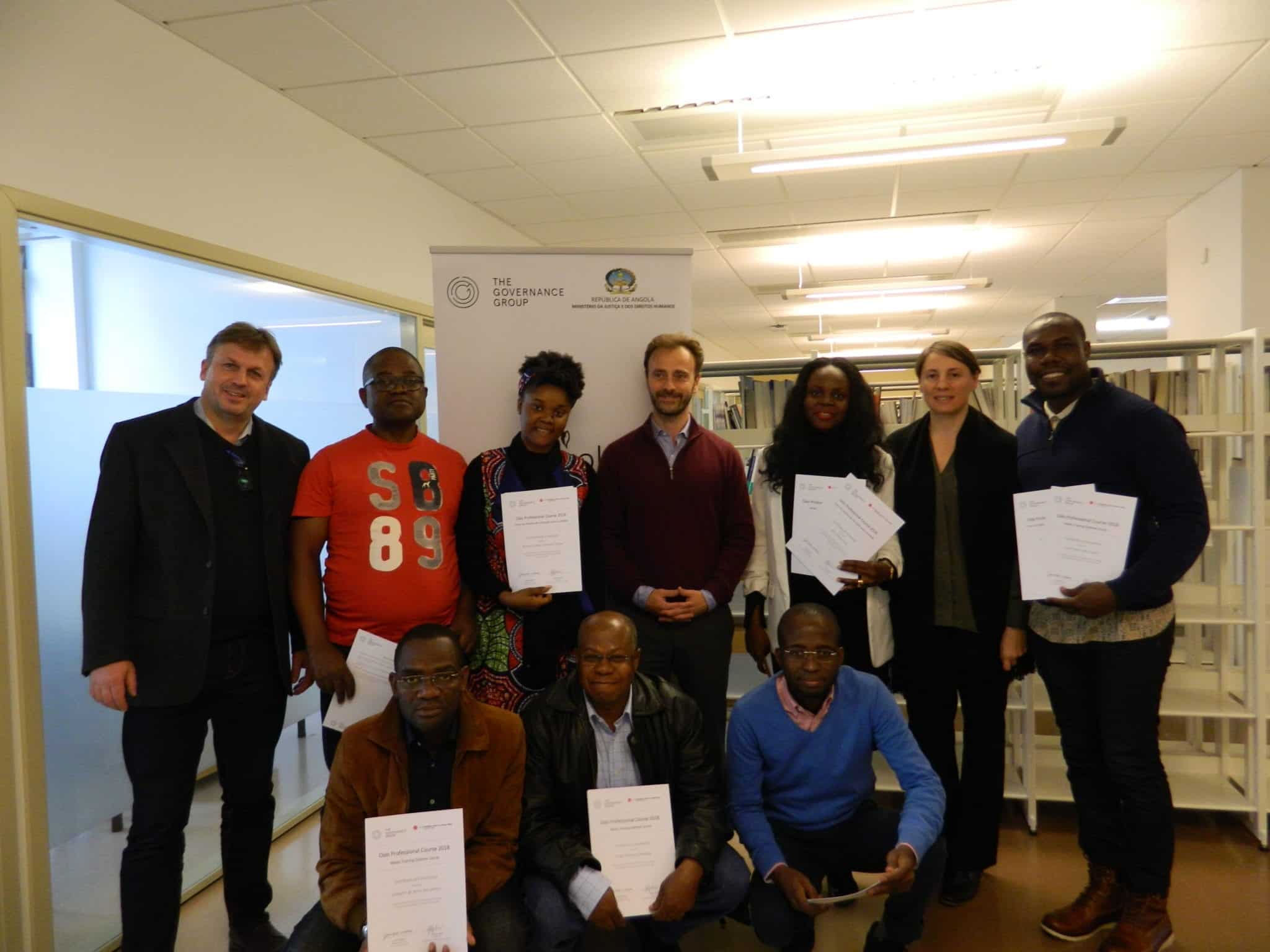The 'Oslo Professional Course', a one-week training course for 5-7 participants from Angola hosted in Norway, is a key component of the Angola Human Rights Project. As part of this, The Governance Group in partnership with the Angolan Ministry of Justice and Human Rights offer an annual Media Training Diploma Course for Angolan professionals. The course provides first-hand introductions to key issues and challenges in the Norwegian media and communication sector as well as includes issues of relevance to the current Angolan and southern African context. The course focuses on freedom of expression and access to information, and the relationship between a changing media landscape and human rights.
This year, the Media Diploma Course took place in Oslo from the 22nd to 26th October. The course focused on how a free and independent media can play an important role in the protection of human rights, for example by providing an effective guarantee on government accountability and acting as a key check on corruption. In many societies, media can also be co-opted and have the opposite effect, fuelling instead prejudice and division. International law requires States to both refrain from controlling or restricting the media, as well as allowing a free and diverse media landscape by enabling the legal and regulatory environment. However, the media landscape both globally, regionally and nationally has changed fundamentally in recent years. The Internet, and social media especially, has taken a new position of importance as a platform for content distribution alongside traditional forms of media. The rise of the internet and social media has occurred rapidly, and they now hold a key influence over the visibility and accessibility of media and related content. Alongside the rise in internet and social media, there has been an increase in surveillance and monitoring of communications by States. Whilst this rapid change in the media landscape calls for more detailed regulation, there is a need for clear rules and restrictions, in order, to ensure freedom of expression on the internet. This year’s Media Diploma Course therefore aimed to enable professionals working in the media sector in Angola to have a better understanding of the role and impact of media and communication and its relationship to human rights amid the changing technological and regulatory landscape. The course was designed to broaden the participant's perspectives and enhance their opportunities to integrate both key principles and practical approaches into their daily work.
During the week-long course, participants had both lecturers on the main topics, as well as visits to relevant institutions in Norway working in the media and communication sector. This year’s lecture topics included Local dilemmas and global challenges to freedom of expression and opinion; Ownership models, editorial policies and priorities in sub-Saharan Africa; Defamation; and Cyber security and human rights. The participants visited institutions such as Fritt Ord, the Norwegian Union of Journalists, the Norwegian Broadcasting Corporation, as well as attended and participated in an event on press freedom in Africa.
Press freedom and freedom of expression is increasingly coming under pressure and is of utmost importance in the current global context and The Governance Group looks forward to further collaboration on freedom of expression, media freedom and human rights with the graduates of the 2018 Media Diploma Course.
The participants have written a number of articles on the training and the project since returning to Angola, which can be found here: Angolan newspaper articles
Media Diploma Course 2018
